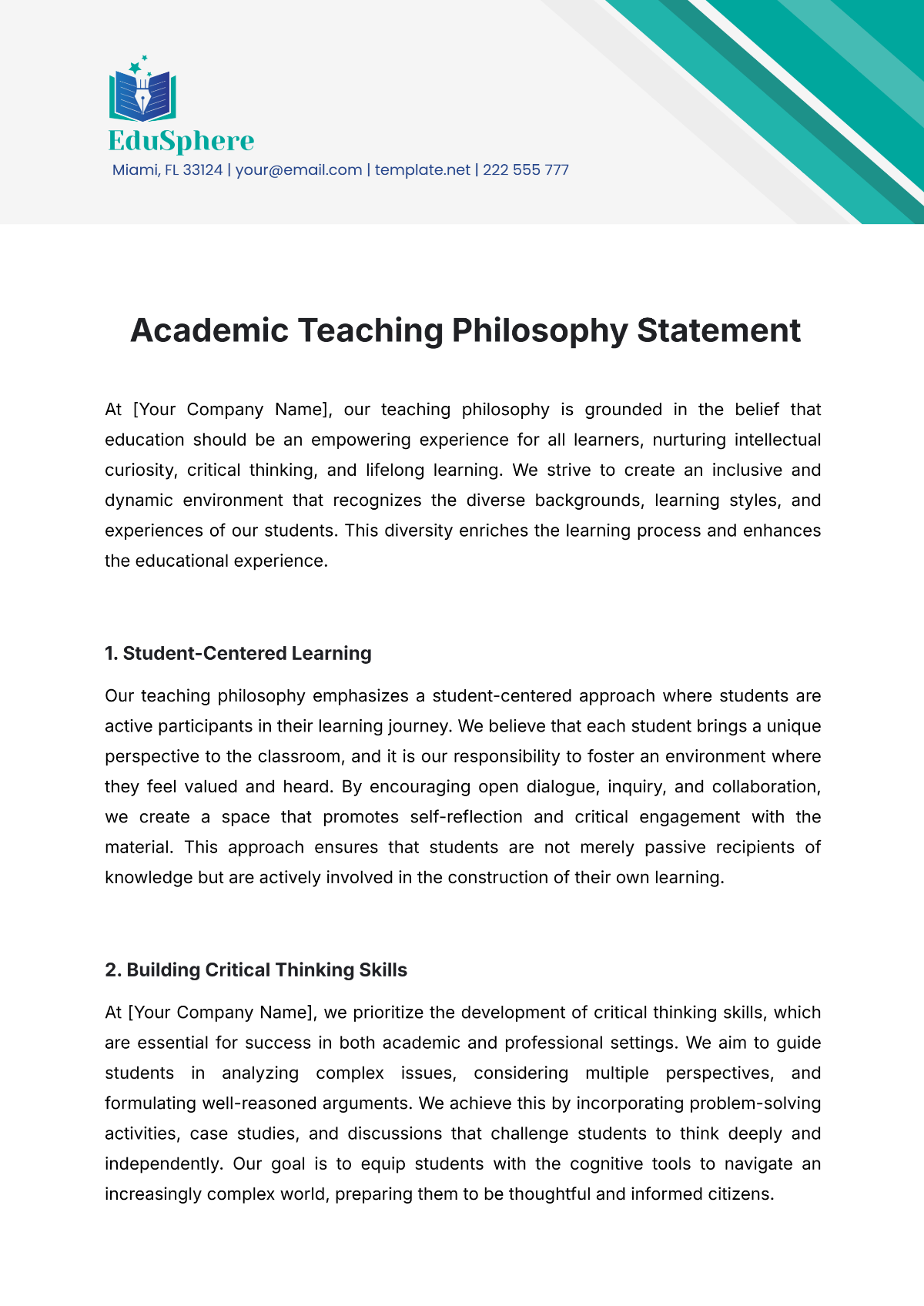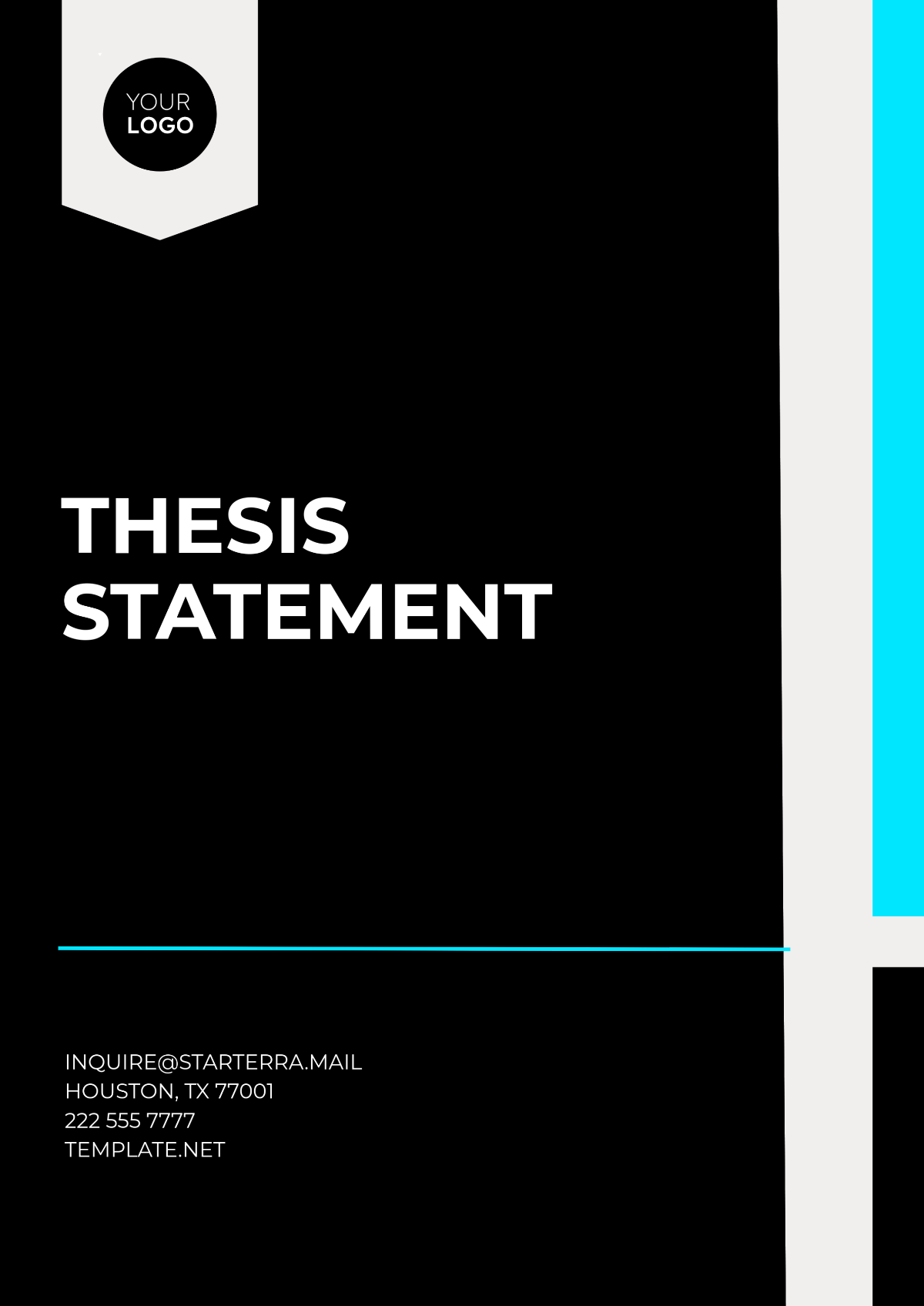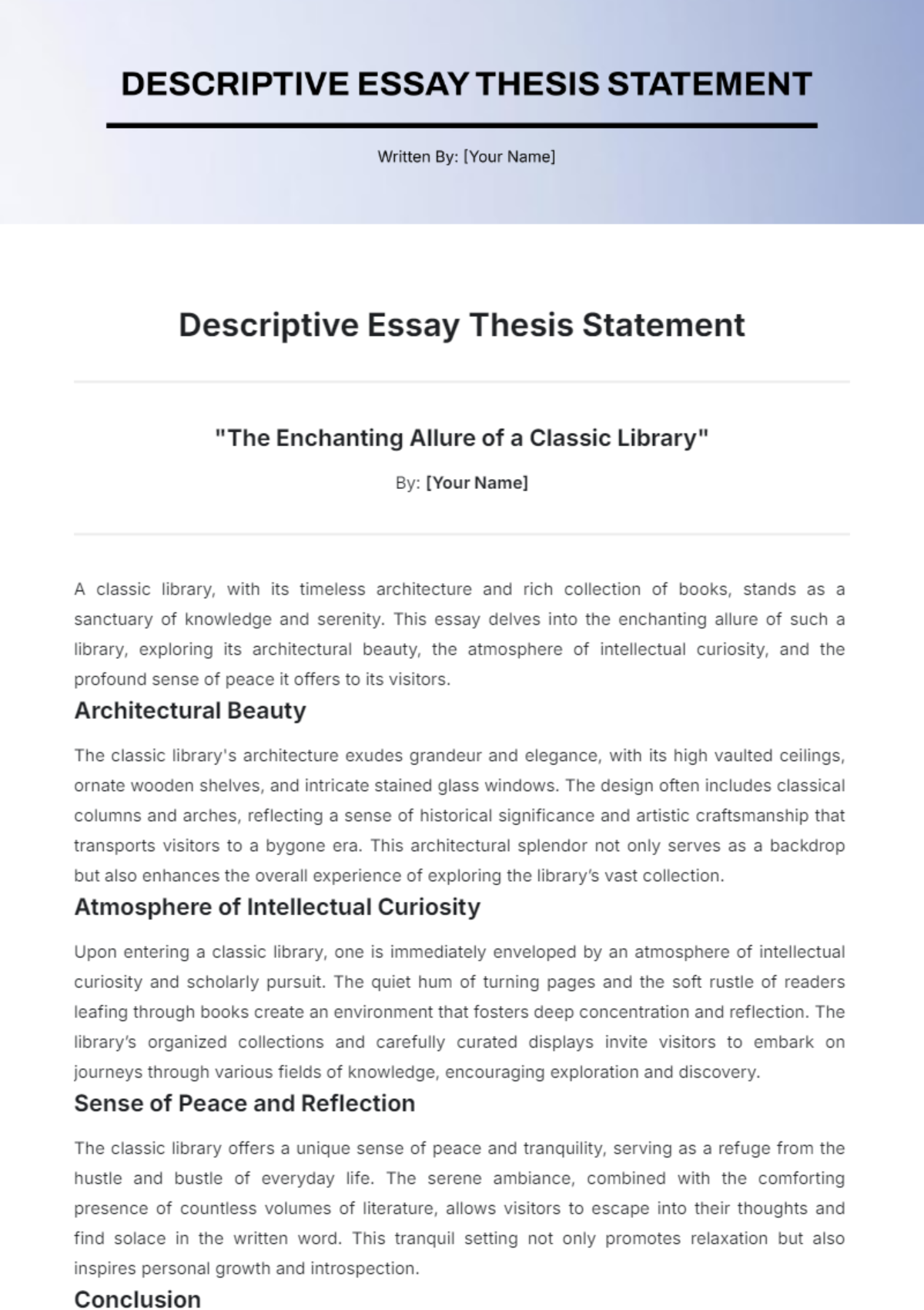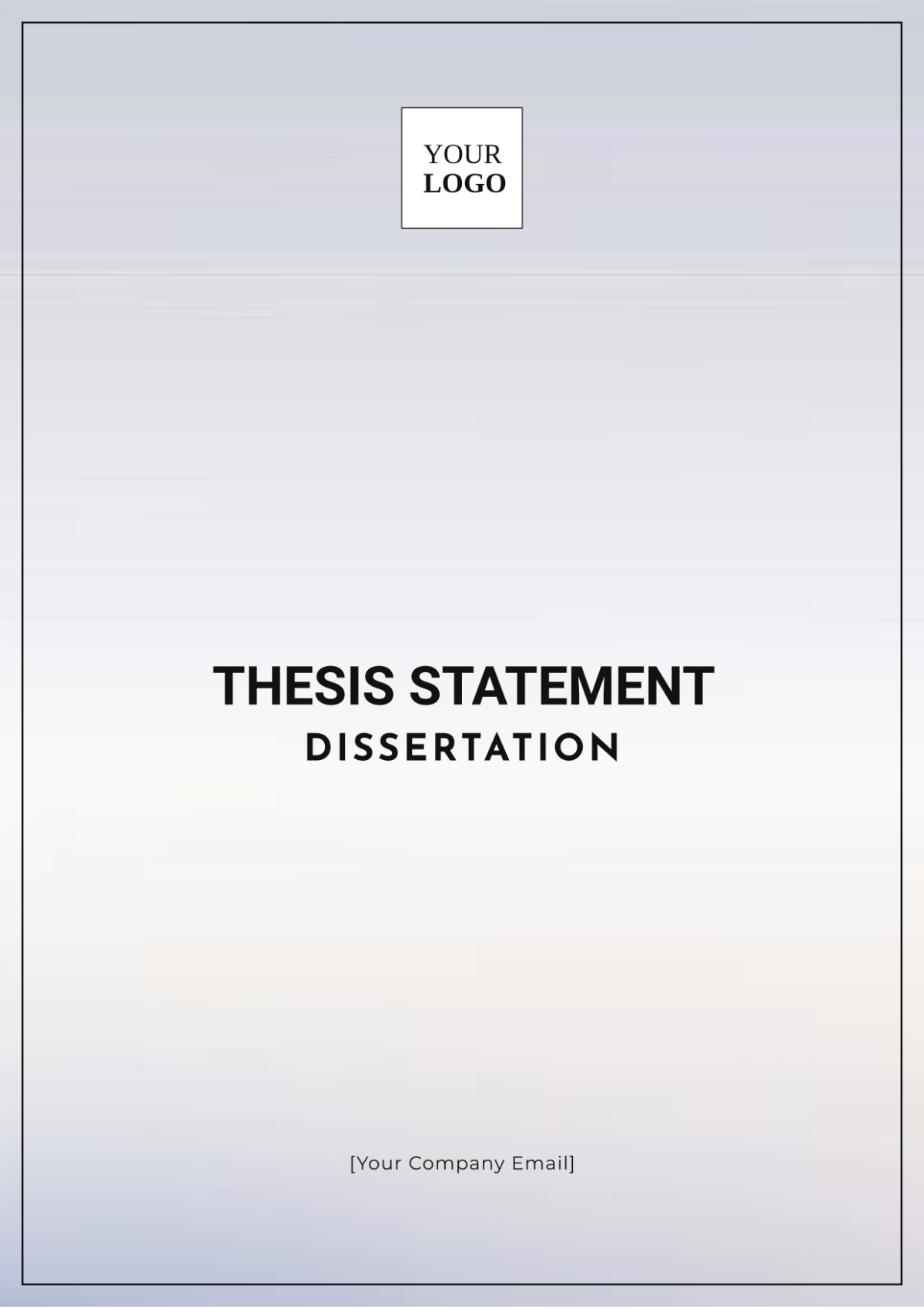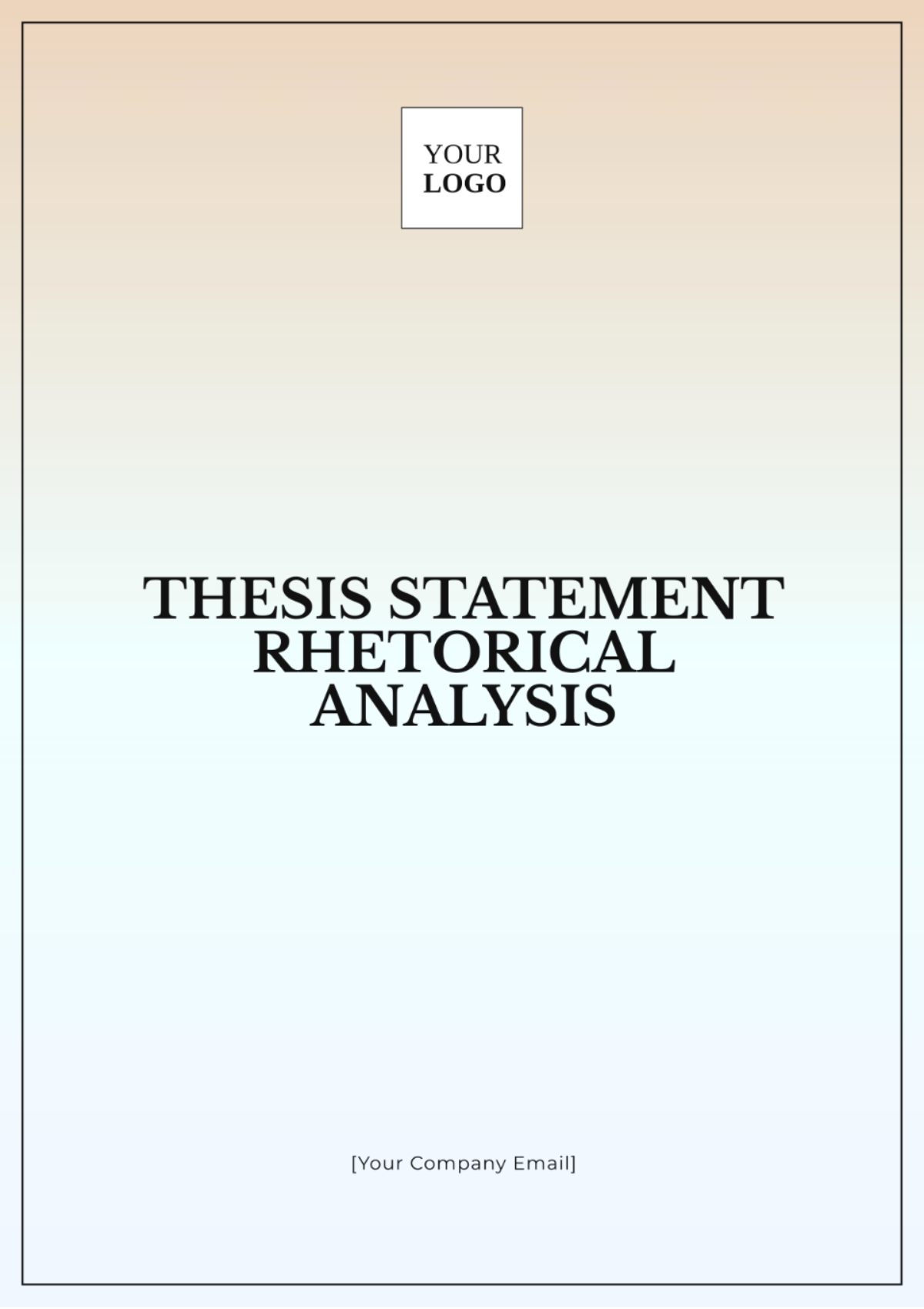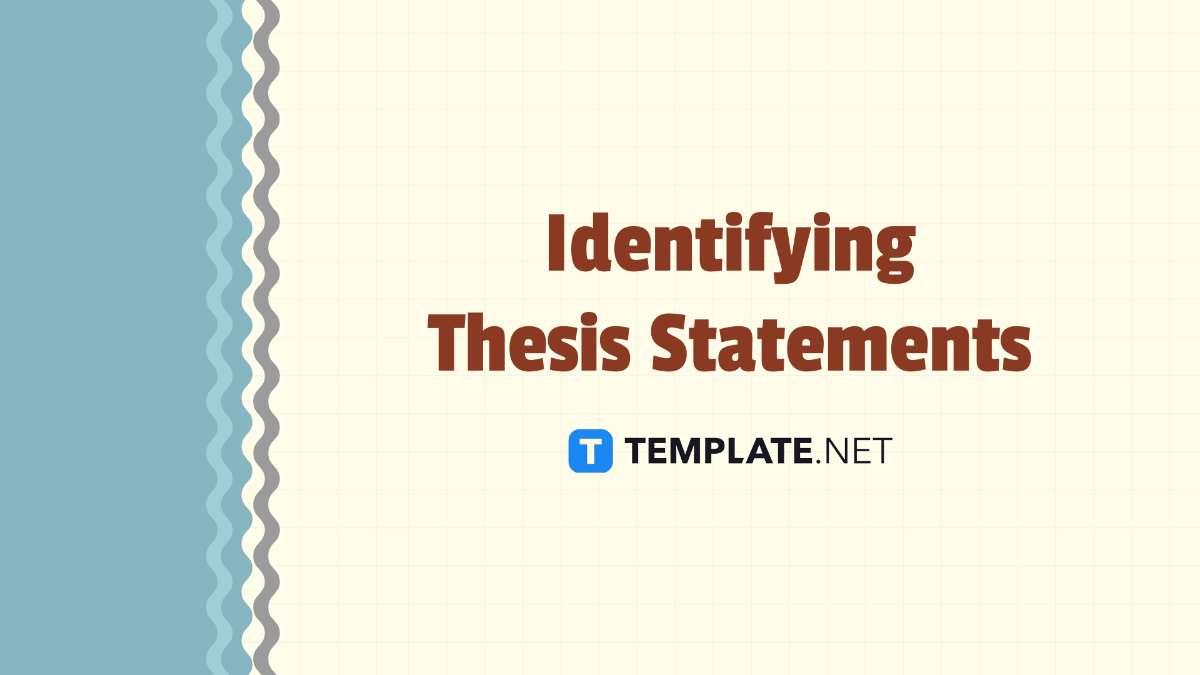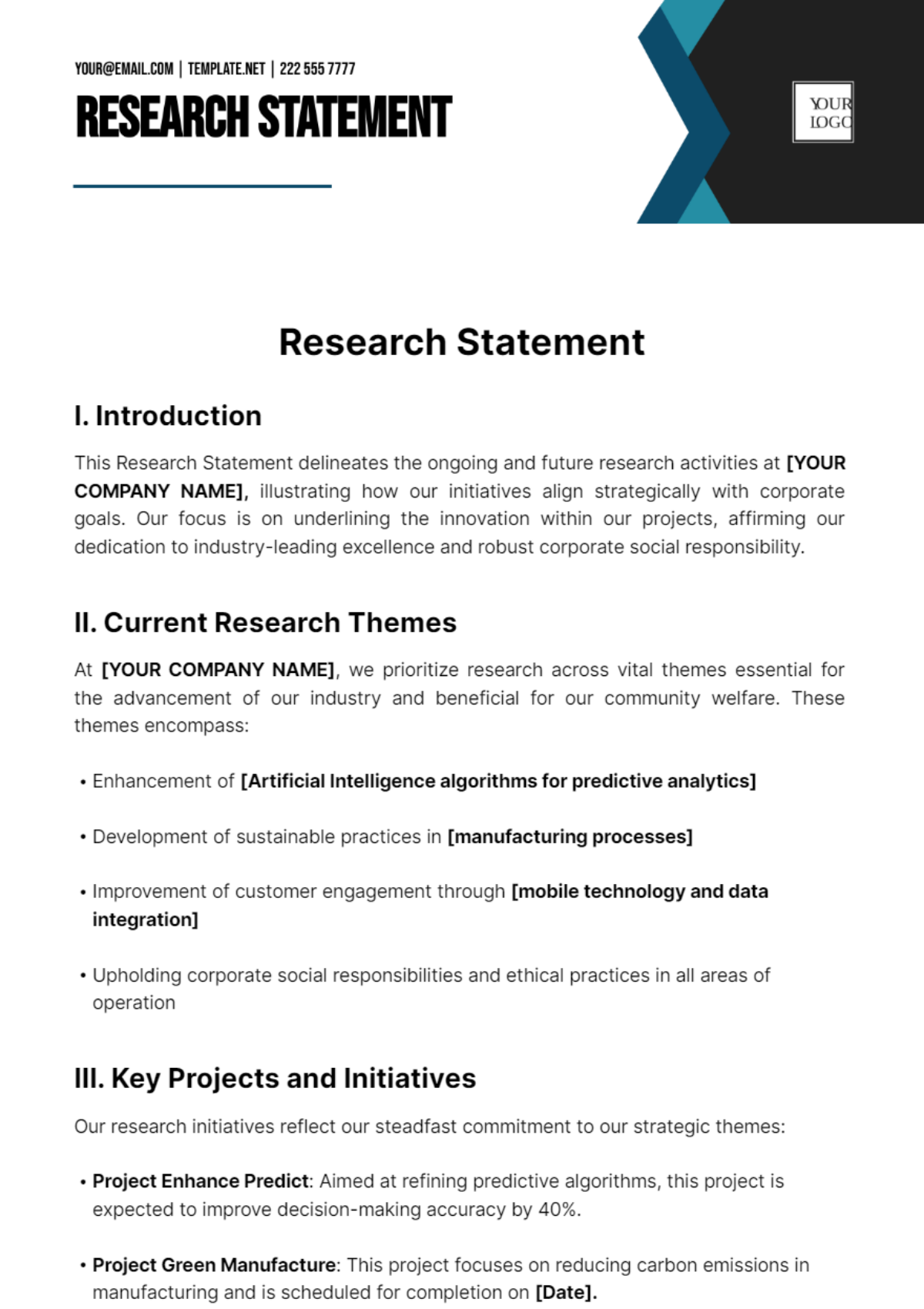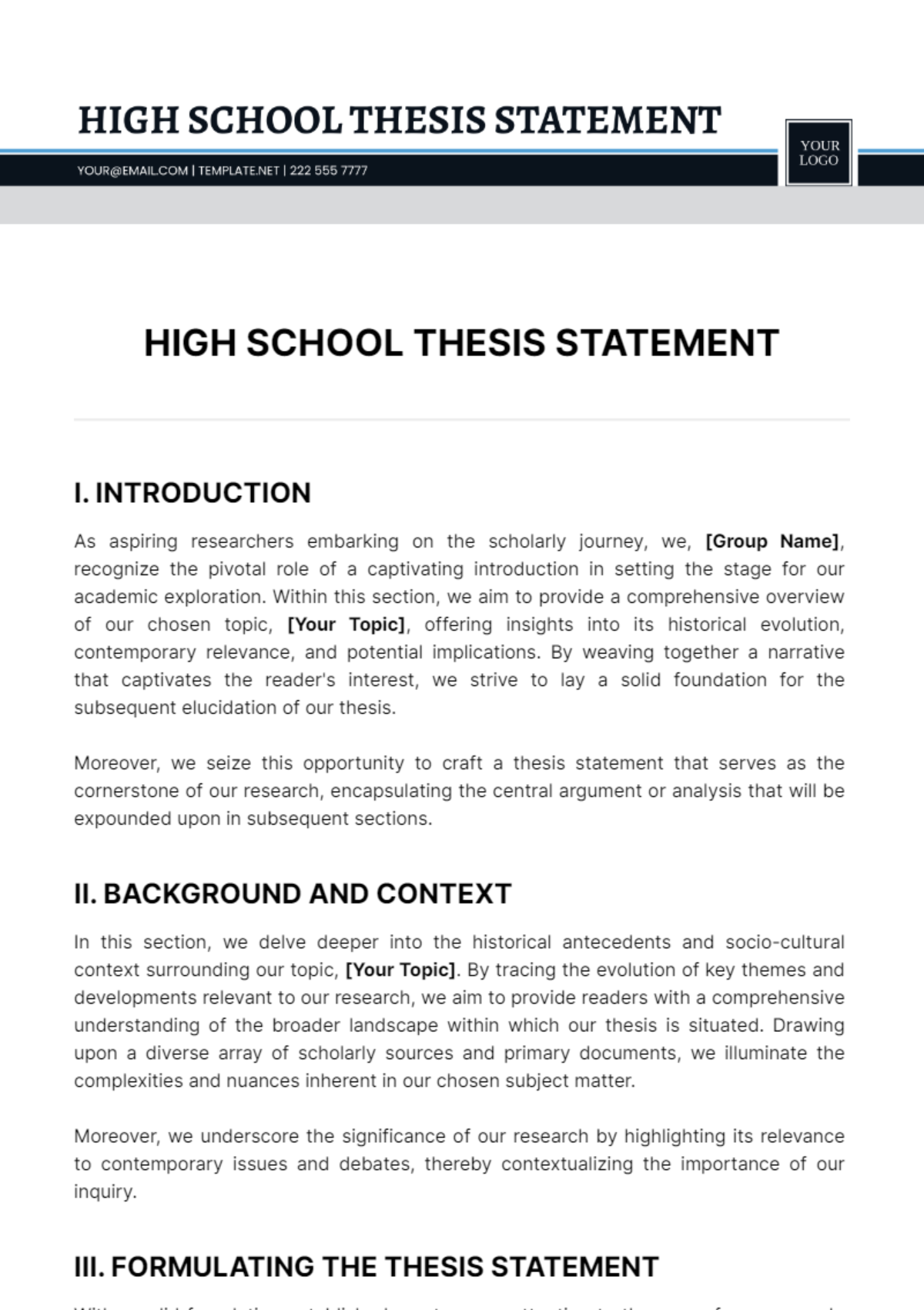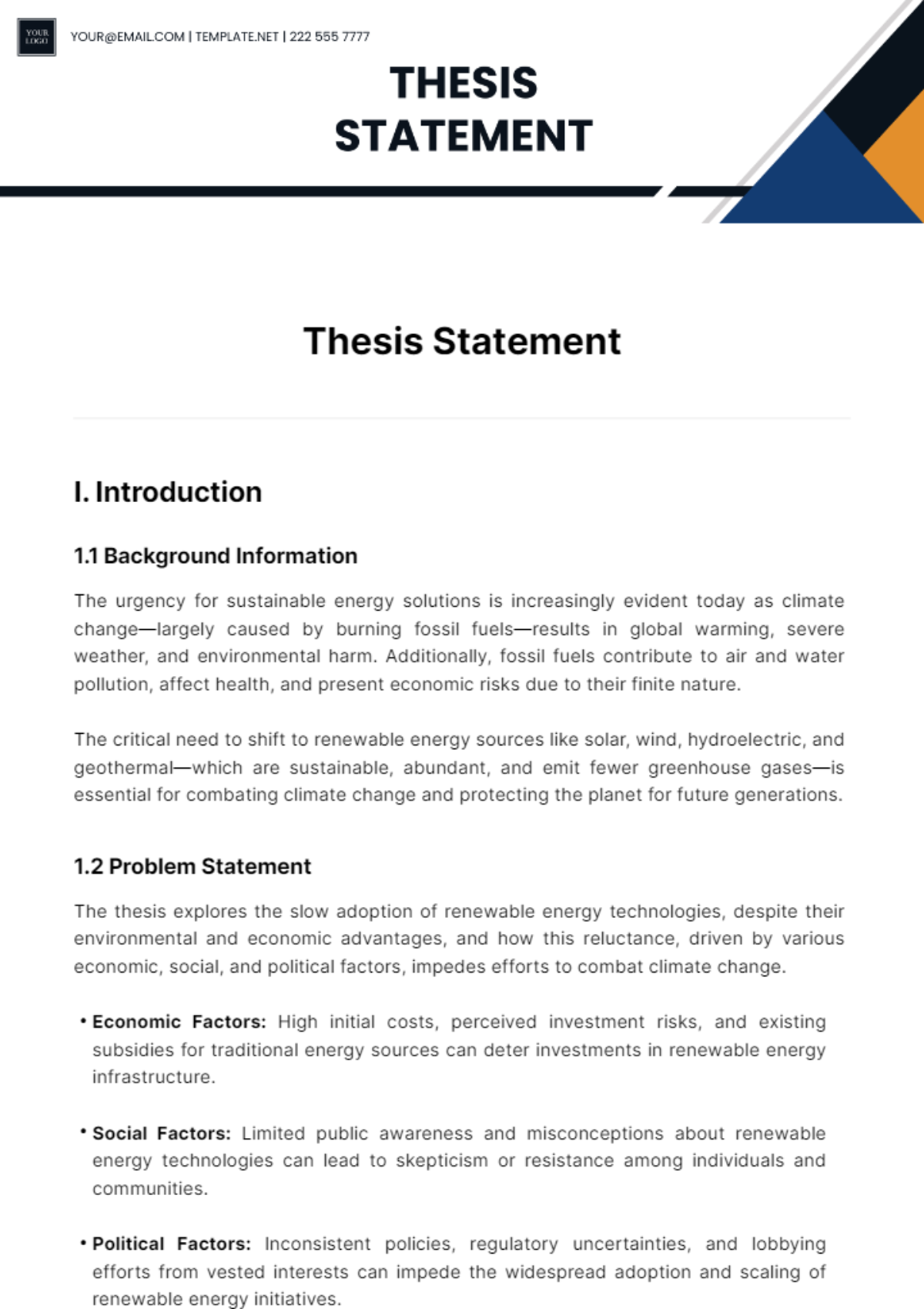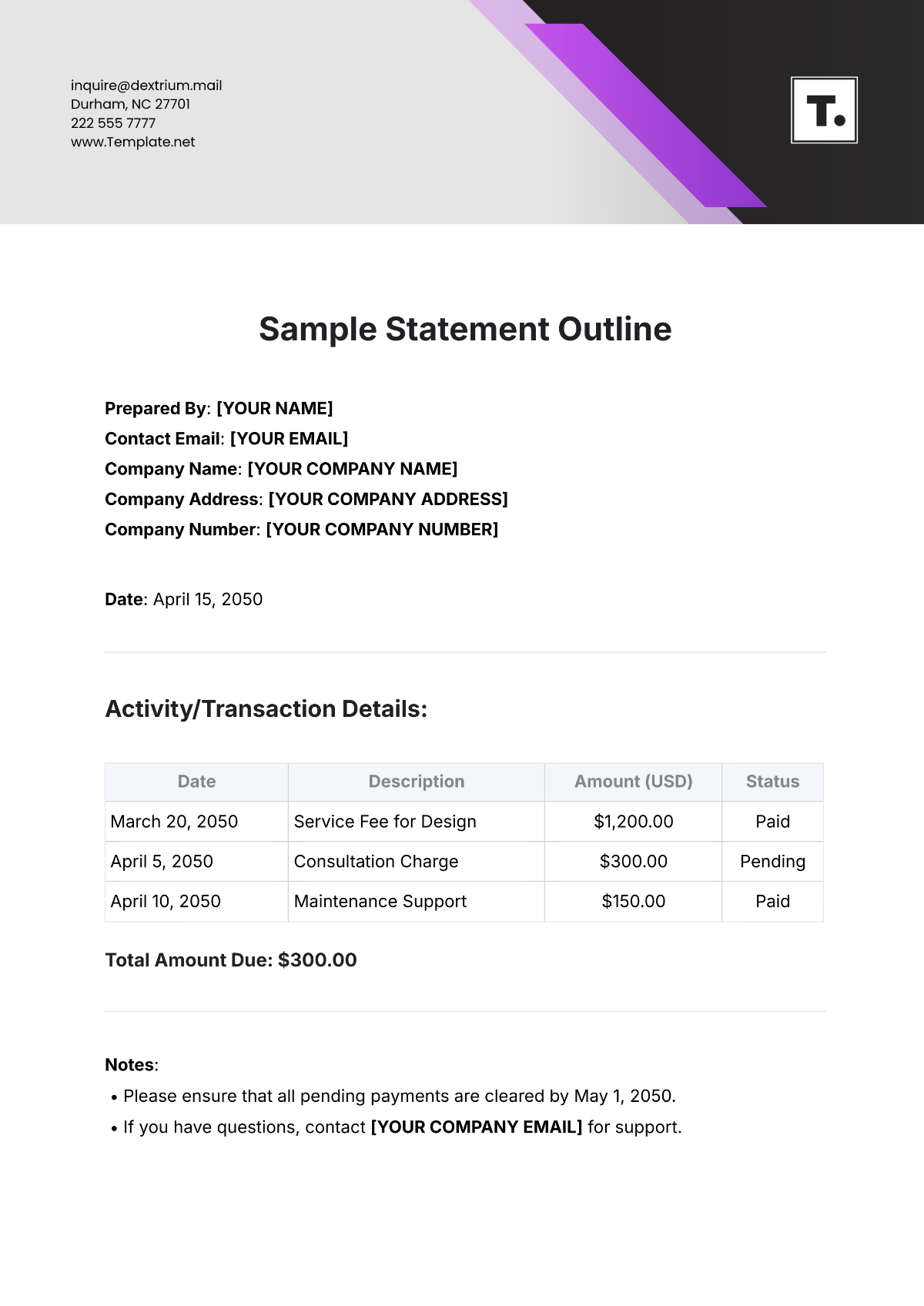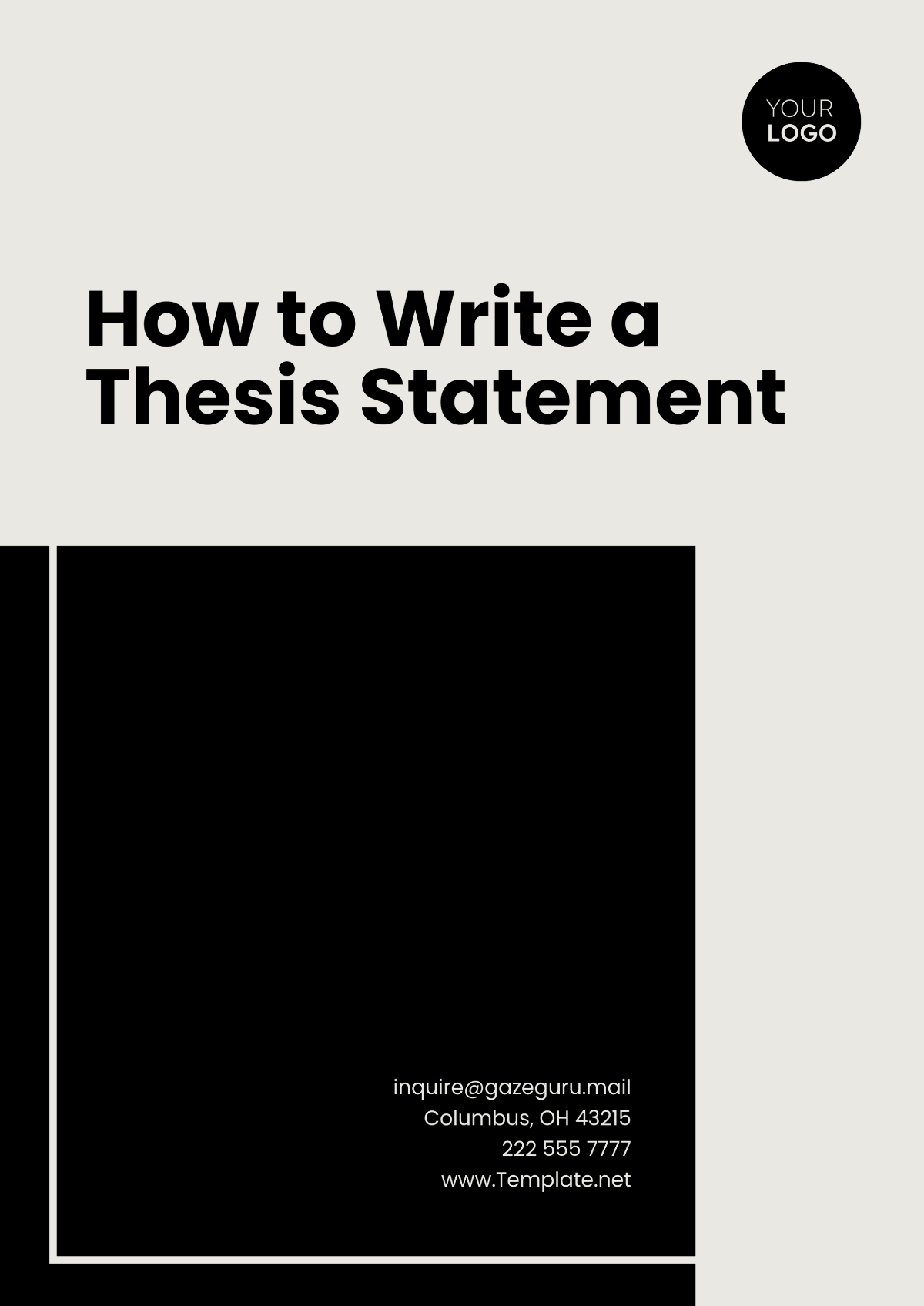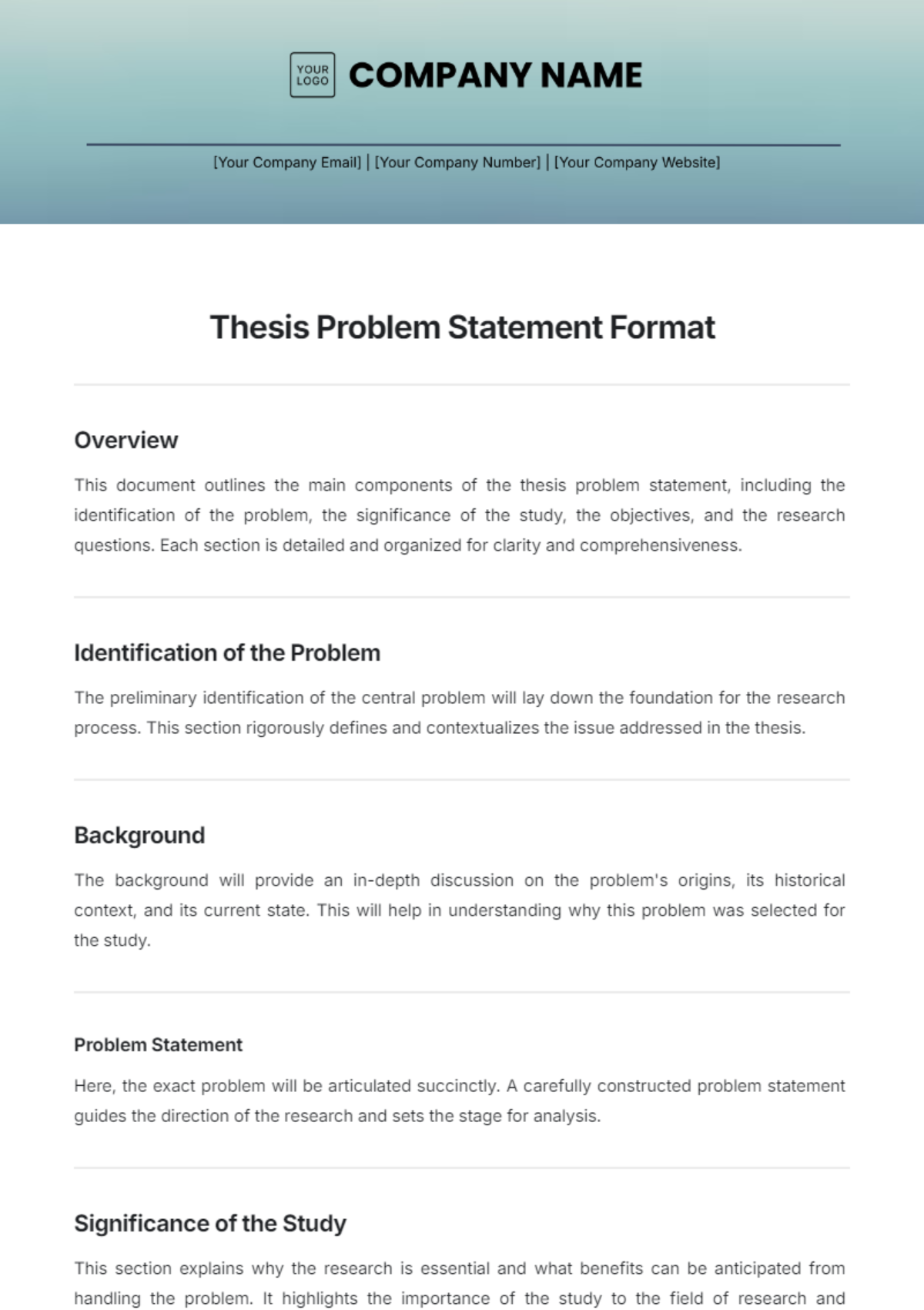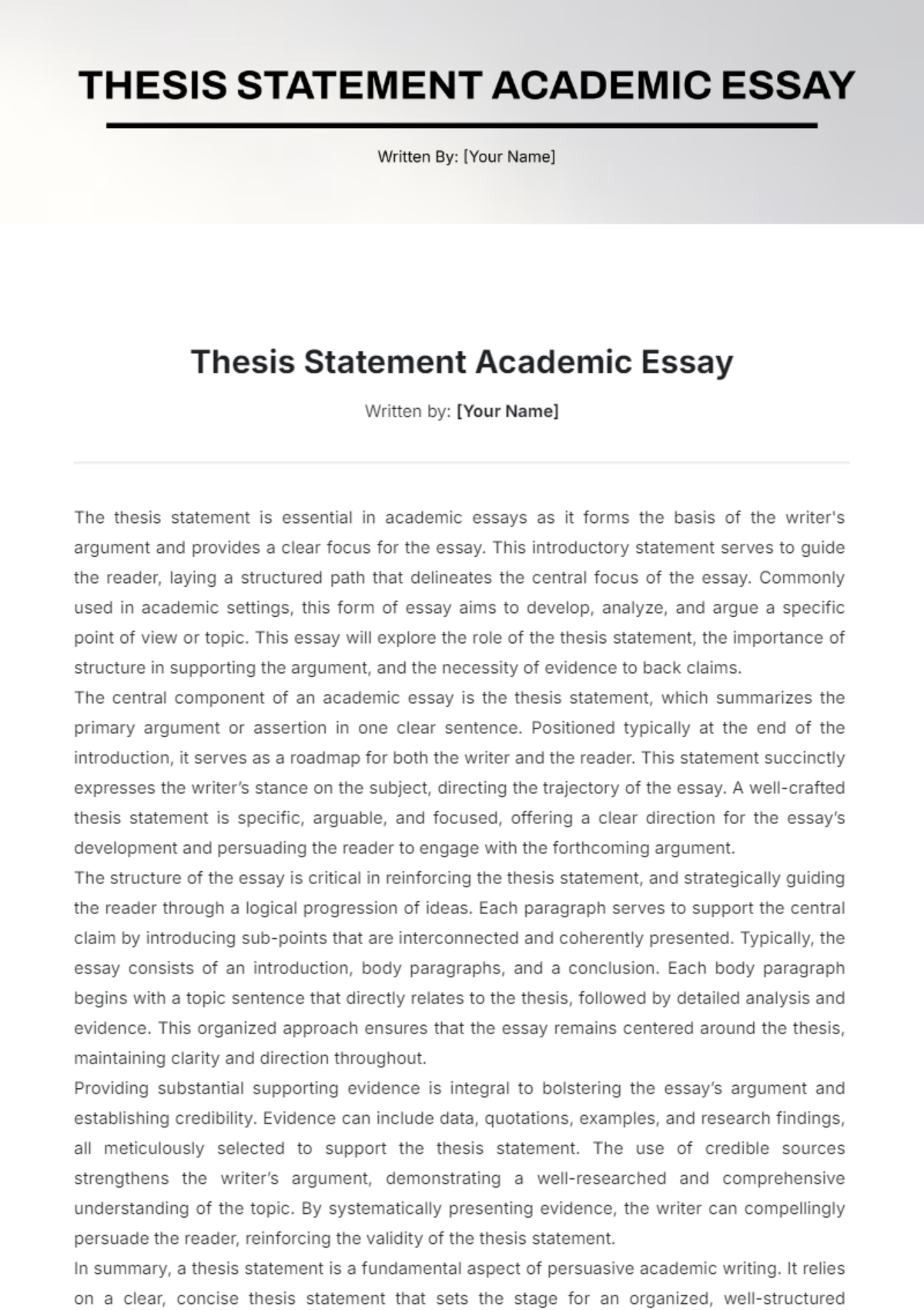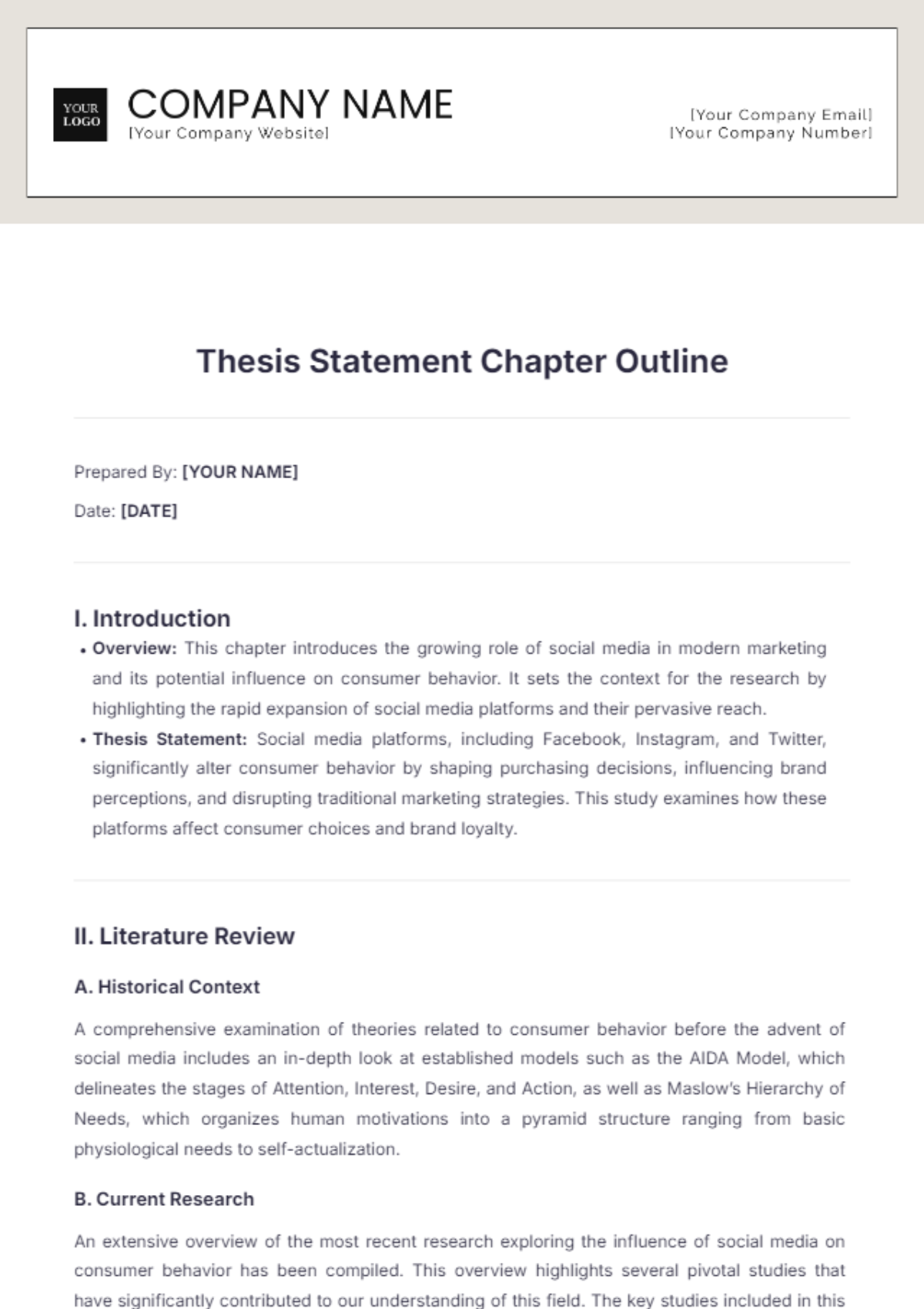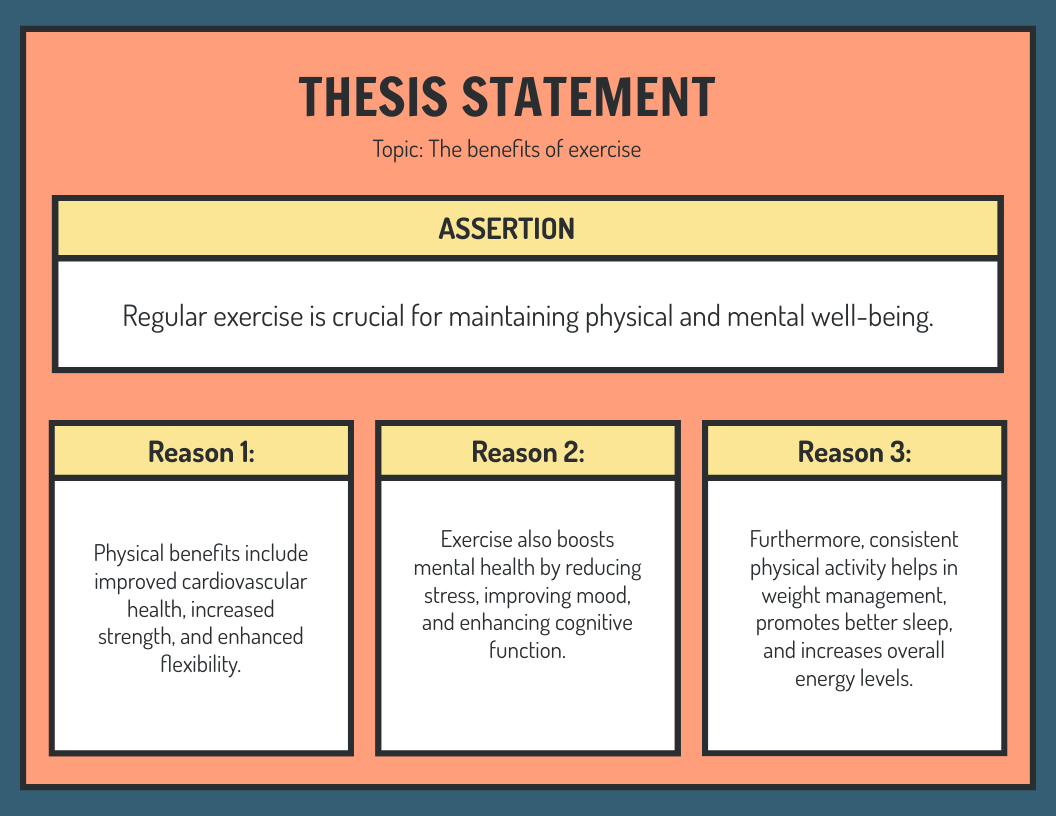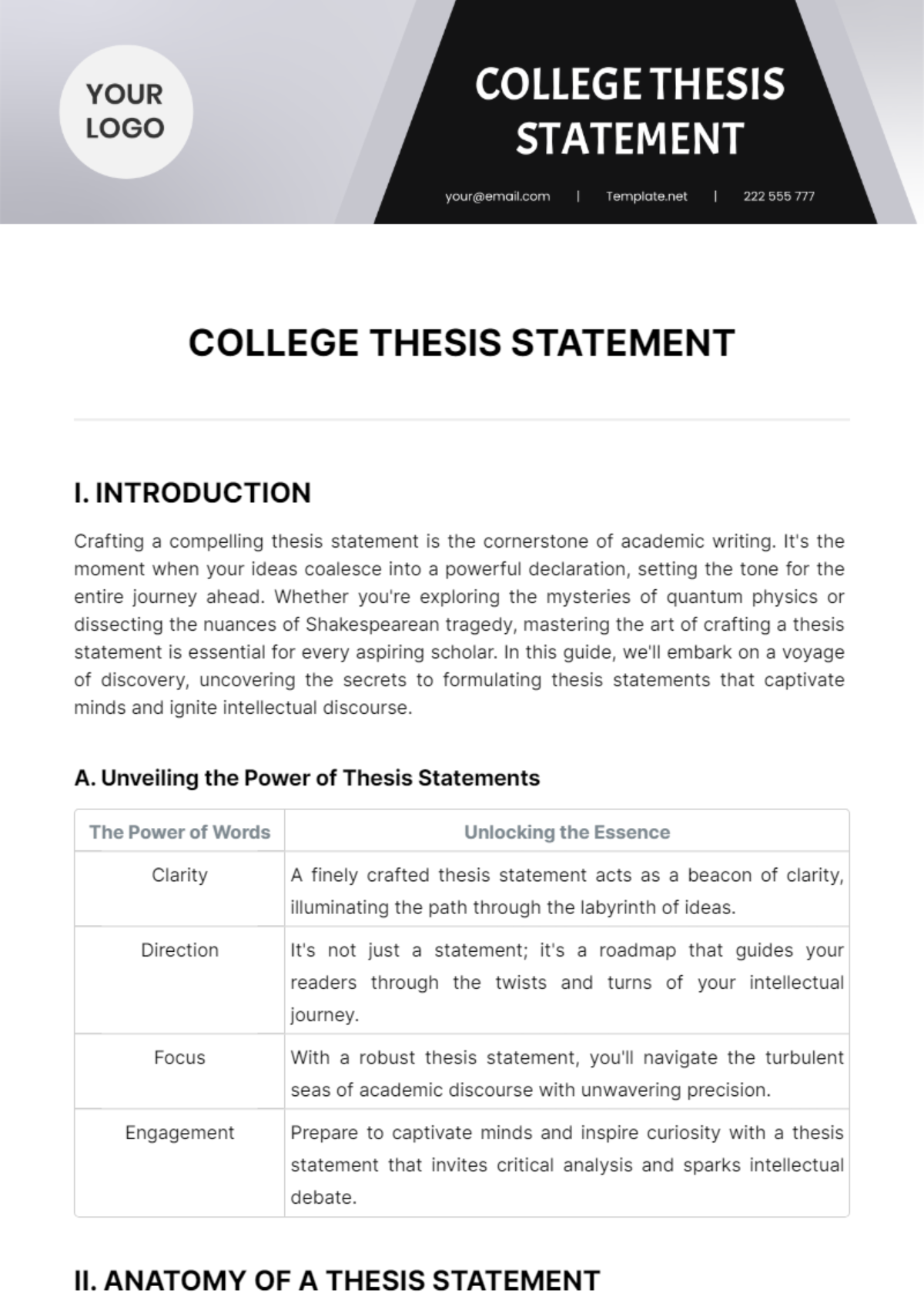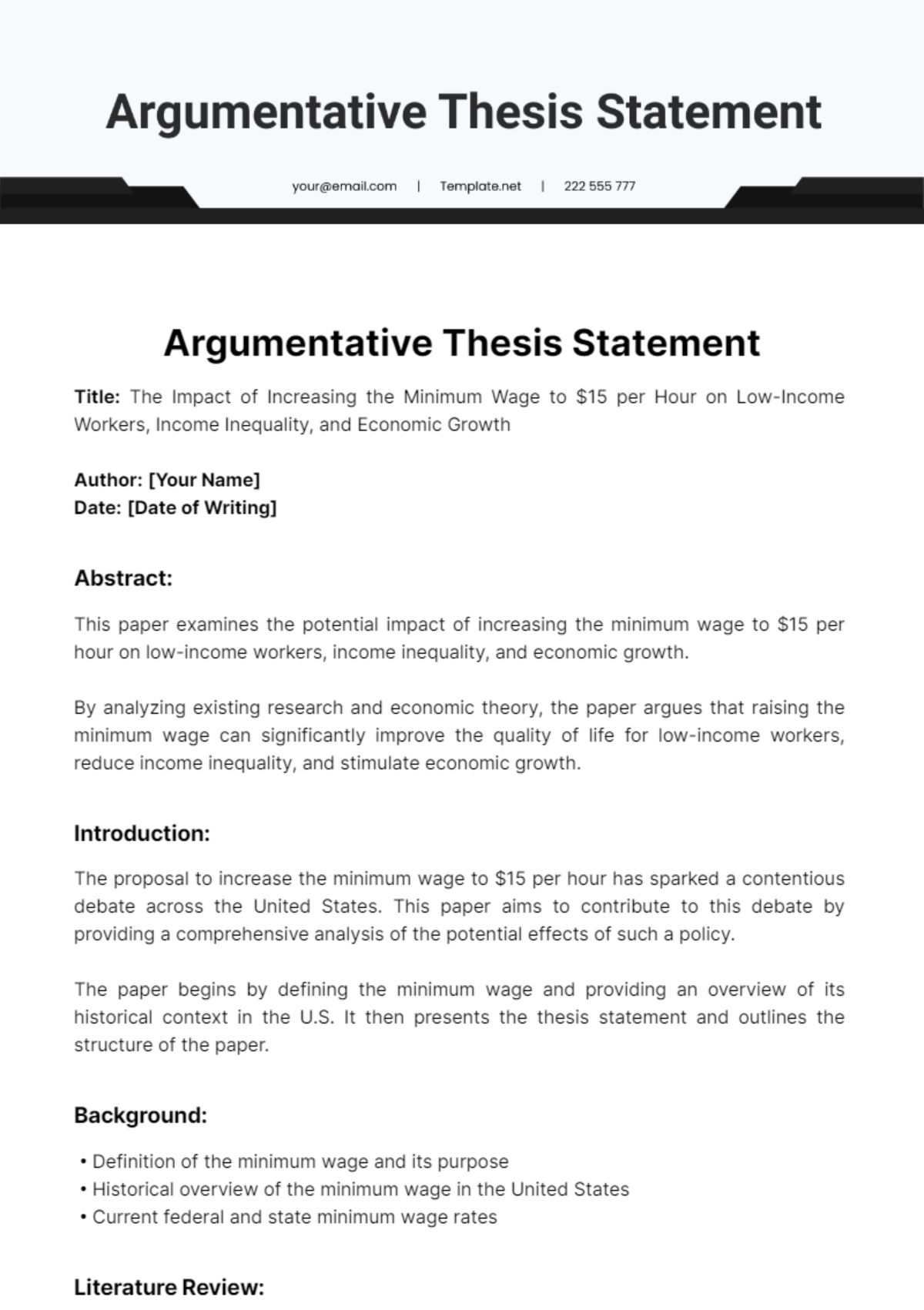How to Write a Thesis Statement
Prepared by: [YOUR NAME]
Contact: [YOUR EMAIL]
A well-crafted thesis statement is essential for clear, focused, and effective writing, whether you're drafting an academic essay, research proposal, or presentation. This guide will walk you through step-by-step instructions on writing a compelling thesis statement. Follow these methods to sharpen your writing and communicate your ideas with precision.
I. Understanding What a Thesis Statement Is
A thesis statement is a concise declaration of your main argument or idea. It serves as the guiding framework for your work, giving your readers a clear idea of your topic and the position you are taking. A strong thesis statement is:
Specific: Focused on a single idea.
Arguable: Not a mere fact but a claim others can challenge.
Focused: Avoids being overly broad or detailed.
II. Identifying the Purpose of Your Thesis Statement
Your thesis statement should match the purpose of your writing. Ask yourself:
Is this an analytical piece? Break down and evaluate an idea or issue.
Is this a persuasive piece? Take a stance and aim to convince your audience.
Is this an informative piece? Explain a concept or process.
Example Purposes with Sample Thesis Statements:
Purpose | Example Thesis Statement |
|---|---|
Analytical | "The portrayal of climate change in media influences public opinion, as shown through sensationalism and underreporting scientific data." |
Persuasive | "Implementing stricter recycling laws is crucial for reducing environmental damage in urban areas." |
Informative | "The French Revolution was driven by economic disparity, political corruption, and the influence of Enlightenment ideas." |
III. Brainstorming Your Topic
To develop a thesis, start with brainstorming:
List potential topics.
Narrow down to one that matches your writing's purpose.
Formulate a question you want to answer.
Example:
Topic: Social Media.
Question: "How does social media affect teenagers' mental health?"
Thesis: "Excessive social media use among teenagers negatively impacts mental health by increasing anxiety and lowering self-esteem."
IV. Crafting a Preliminary Thesis
Start with a working thesis. This initial draft can be revised as your ideas evolve.
Steps:
Combine your topic and your stance.
Add supporting reasons.
Example of a Working Thesis:
“Renewable energy sources should replace fossil fuels because they are sustainable, reduce greenhouse gas emissions, and lower long-term energy costs.”
V. Refining Your Thesis Statement
After drafting your working thesis, refine it using these strategies:
Ensure clarity: Avoid vague language.
Add specificity: Define scope and key terms.
Make it concise: Limit to one or two sentences.
Refined Thesis Example:
"By replacing fossil fuels with renewable energy, countries can reduce carbon emissions, promote economic stability, and achieve long-term sustainability."
VI. Testing the Strength of Your Thesis Statement
Use these questions to evaluate your thesis:
Is it debatable? Can someone reasonably disagree?
Is it specific? Does it avoid being too broad or too narrow?
Does it guide the reader? Does it clearly outline your argument's direction?
Strong Thesis Example:
"Banning single-use plastics in urban areas will significantly reduce environmental pollution, but success depends on creating affordable alternatives and increasing public awareness."
Weak Thesis Example:
"Plastics are bad for the environment."
VII. Examples Across Different Fields
Here are examples of thesis statements tailored for various purposes:
Field | Thesis Statement |
|---|---|
Education | "Standardized testing undermines creativity and critical thinking in students." |
Technology | "Artificial intelligence has the potential to revolutionize healthcare but poses risks to data privacy." |
History | "The abolition of serfdom in Russia paved the way for economic reform but created social unrest." |
Literature | "In 1984, George Orwell critiques totalitarianism through the use of symbolism and irony." |
VIII. Revising and Finalizing Your Thesis
Revision is key to a strong thesis statement. After drafting your essay or paper:
Revisit your thesis: Does it reflect the content of your work?
Strengthen the language: Use precise and compelling wording.
Ensure alignment: Make sure your thesis matches your essay's argument.
Example Revision Timeline:
First Draft: April 15, 2050.
Feedback Received: April 20, 2050.
Finalized Thesis Statement: May 1, 2050.
Crafting a powerful thesis statement takes practice and attention to detail, but with these steps, you can create one that serves as the backbone of your writing. A strong thesis ensures clarity and focus, making your work impactful and engaging.
Prepared by: [YOUR NAME]
Contact: [YOUR EMAIL]
